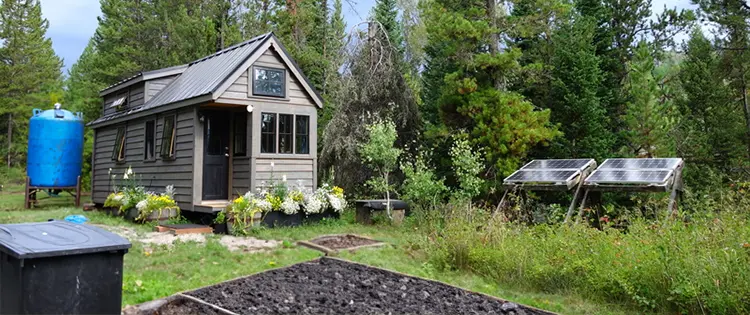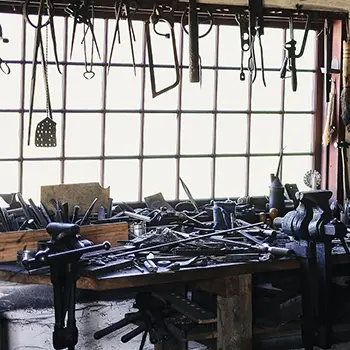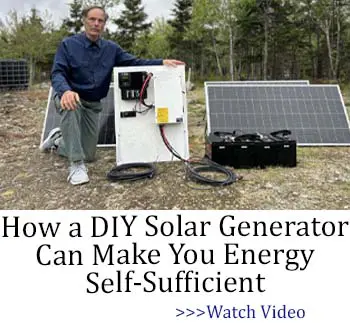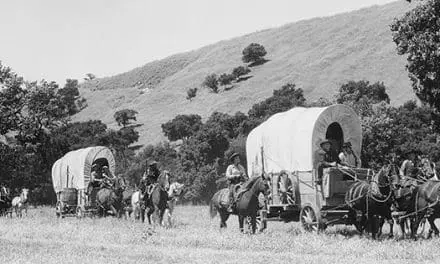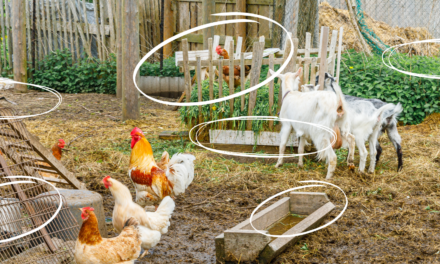It’s a lifestyle that survived thousands of years before the onslaught of electricity. Then, when Edison invented the lightbulb, humanity was destined to become controlled by this current flowing through wires.
What’s ironic is the lifestyle which is now considered by many to be barbaric and unorthodox is where we all are ultimately headed, whether we’ve prepared for it or not.
Living off-grid in a sustainable lifestyle is the desire of many preppers simply because it puts our lives back into our hands without the outside influence of the world and its political landscape.
However, living off-grid is no longer as simple as unplugging from the main power grid. In this article we’re going to look at the #1 enemy of living off-grid and how you can overcome it while protecting what’s most important to you.
The Government and its Laws
Throughout the rest of the article, we’re going to break this thought down further but the #1 enemy of living off-grid is the laws put in place by greedy men in suits.
In truth, this point is true for every local law-making establishment, from local government agencies to D.C. The reason they care so much about what you do on your property? The mighty dollar.
Now, let’s break this thought down and look at the “red tape” in place to prevent you from going off-grid.
Zoning Laws
When attempting to go off-grid, you’re going to encounter several zoning laws that may either require a zoning change to be made or permits to be bought.
In a living off-grid situation, these zoning laws will likely include residential, agricultural, and recreational zoning laws.
And, since the idea of being off-grid is to be self-sustaining, there’s likely to be some kind of commerce on the property. This will cause commercial zoning laws to come into play.
These zoning laws are going to work to prohibit several types of structures you normally find on an off-grid homestead, such as:
- Tiny Homes,
- Lean-to Shelters,
- Outdoor Kitchen Areas,
- Mobile Dwellings.
- And Bunkers.
Each area is going to be different. What is allowed in Montana, for example, is going to be considerably more lenient than what may be allowed in California. Learn here how to build a cheap bunker in your backyard, which could be an essential addition in case of a crisis.
Building Codes
Building codes have their place. You want buildings to be built safely. But how exactly are building codes working against off-grid living?
Homesteaders, especially those desiring to live off-grid, are a special type of people who figure their own problems out and use their own hands to build their lives.
Building codes often don’t provide exceptions for these homesteaders, causing their structures to be met with the same scrutiny one would face when building in an urban populace.
Related: How The Government Is Stopping You From Living Independently
Imagine this. You decide you need to build a new outdoor shed to allow you more storage space and to get your equipment out of the elements.
However, in many places, you can’t just build it. You must first purchase the necessary permits and then build everything up to code. If you plan to have any form of plumbing or self-generated electricity in this shed, you must get each step approved by a code inspector before moving on.
All of that seems to be acceptable until you also realize that each step and each structure then becomes of public record, which, besides meaning the general public can know what you have, leads us to our next section.
Taxes
When your property and structures are of public record, you are then liable for any additional taxes incurred on your property.
Depending on the adjuster, these taxes could be exaggerated to force you to change your lifestyle or leave your homestead.
Another side to the same coin is that municipalities aren’t going to want to lose tax income. If you build on your property without the proper permits and tax adjustments, you could face hefty fines. This makes doing research even more important to ensure you are protected against being taxed off your property.
Environmental Regulations
Environmental regulations are the epitome of a catch-22. On one hand, we want to protect our natural resources, ecosystems, and overall public health. On the other side, these EPA regulations can be used to deter or completely prohibit living off-grid in some locations.
These environmental regulations can control everything from waste disposal to rainwater collection. For example, some municipalities prohibit rainwater collection under the guise of it impeding water flow to dependent farms and waterways.
Related: 100-Year-Old Way To Filter Rainwater In A Barrel
If you are collecting rainwater and want to make sure it is safe to drink, it’s best to filter it yourself. You can learn here a cheap and easy way to create an ingenious rainwater harvesting and purification system capable of storing 165 gallons of water.
Some local governments are also starting to crack down on waste disposal and use laws intended to control large landfills to control what you can do on a homestead.
One way is when it comes to composting.
Because composting deals with food waste, some interpret the laws to call a composting bin a landfill, thus forcing you to follow the same guidelines that a landfill would be required to. This adds more work and cost to your off-grid homestead.
Utility Regulations
While not a requirement, chances are you’re still going to have a source of power and water. Your source of water could be a nearby stream or rainwater collection and have little regulations. Electricity, however, is a different story.
Many local governing agencies have laws in place regarding renewable energy sources, such as turbines and solar. These laws often require these sources to still be connected to the grid and obtain necessary permits. The problem with this is that anything connected to the power grid then becomes susceptible to any attack on the power grid, such as an EMP attack.
Related: DIY EMP-Proof Truck
More jurisdictions, however, have a way around having to connect to the grid, but this often requires a large fee to be paid. After all, if you’re not on the grid, they aren’t getting money from you, so they feel the need to recoup that loss.
From zoning regulations dictating what we can build to building codes demanding conformity, every step taken towards living off-grid seems to be met with hurdles put in place by bureaucrats. Then, living off-grid, defined by living free of being connected to public utilities, clashes with the desire of utility companies to make a hefty profit. Yet off-grid living is still a desirable lifestyle.
This article first appeared here.
People Used to Eat These During Famines
How To Make A Looters & EMP-Proof Shelter In Your Own Backyard (Video)
How The Government Is Stopping You From Living Independently

